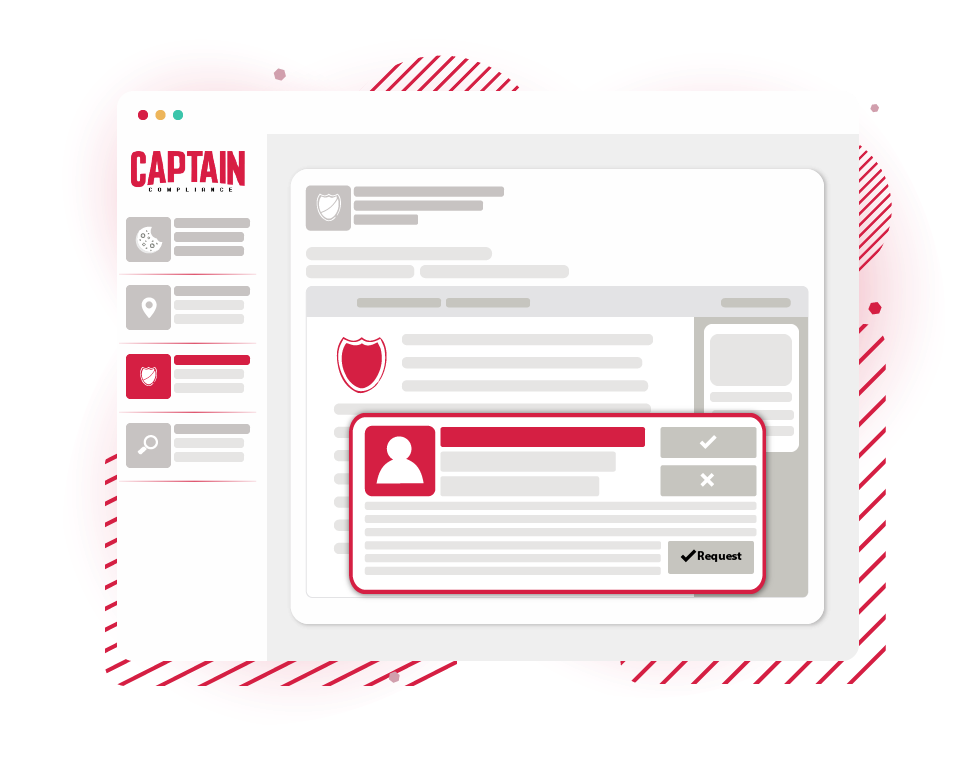As companies increasingly rely on external partners to streamline operations and enhance efficiency, service providers have become an essential component of business ecosystems. These providers manage critical functions ranging from IT infrastructure to customer support, often handling large volumes of personal data. However, their role has gained prominence under modern data privacy laws such as the General Data Protection Regulation (GDPR), the California Consumer Privacy Act (CCPA/CPRA), and other state-level frameworks. Understanding the service provider’s role within the broader regulatory environment is critical for ensuring compliance with privacy notices, subprocessors, and data-sharing agreements.
Service providers are more than just vendors—they are extensions of the business, processing data on behalf of their clients with specific restrictions. This guide from Captain compliance dives deeper to explore how service providers fit into the privacy compliance landscape, what sets them apart from other vendors, and how organizations can manage these relationships effectively. At the end if you still have questions you can reach out to one of the Captain Compliance superheroes to help with any of your data privacy needs.
State Privacy Laws: How They Define What a Service Provider Is
The term “service provider” is used across multiple privacy regulations, though the exact definitions and obligations may vary slightly. Privacy laws such as CCPA, GDPR, VCDPA (Virginia’s Consumer Data Protection Act), and Colorado Privacy Act highlight the importance of contractual relationships between businesses and service providers. These laws ensure that businesses can delegate certain responsibilities without compromising user privacy or violating legal requirements.
Under the CCPA, a service provider processes personal data only according to the instructions of the business (the “data controller”) that collects the information. This relationship must be governed by a written contract, stipulating that the service provider cannot use or disclose personal data for any purpose outside the scope of the contract. Similarly, under GDPR, service providers—referred to as processors—are prohibited from making independent decisions about how data is processed. Both laws emphasize the need for purpose limitation, ensuring that personal information is not reused or shared beyond the agreed terms.
State-level laws like the VCDPA and CPA in Colorado align with the principles of GDPR, further reinforcing that service providers must act within the narrow confines of their contracts. These frameworks also require companies to list service providers and subprocessors in their privacy notices, providing transparency about data-sharing practices.
What If a Vendor Isn’t a Service Provider?
Not every vendor fits the definition of a service provider. If a vendor exerts control over the personal data they receive or uses it for purposes outside the instructions given by the business, they are classified as a third-party controller rather than a service provider. This distinction is essential because third-party vendors are subject to different compliance obligations. For example, under the CCPA, data shared with third parties must be disclosed to consumers, and users must have the ability to opt out of such data-sharing arrangements.
Failure to properly categorize a vendor as either a service provider or third-party can lead to compliance risks, including regulatory penalties. In practice, organizations need to audit their relationships regularly to ensure that each vendor aligns with their role and obligations. When a vendor is not classified as a service provider, businesses must:
- Disclose the vendor relationship explicitly in privacy notices.
- Obtain user consent for data sharing, as required by regulations.
- Monitor the vendor’s use of subprocessors and ensure transparency.
- Implement additional compliance measures, such as vendor risk assessments and ongoing monitoring.

What Are 5 Examples of Service Providers?
Service providers encompass a wide range of vendors who offer specialized services to businesses. These entities play essential roles in operations while remaining limited to data processing activities based on client instructions. Some common examples of service providers include:
- Cloud Storage Providers: Companies like Amazon Web Services (AWS) and Google Cloud store and manage data infrastructure for organizations. These providers process data but do not have independent control over it.
- Payment Processors: Services such as PayPal and Stripe handle transactions on behalf of online retailers, managing financial data in compliance with privacy laws.
- Email Marketing Platforms: Providers like MailChimp and HubSpot enable businesses to send marketing emails without repurposing customer data.
- Customer Support Platforms: Tools such as Zendesk offer support infrastructure, accessing personal data only to provide customer service functions.
- Consent Management Platforms (CMPs): Solutions like the one we offer here at Captain Compliance for Cookie Consent Software that manages cookie banners and consent preferences, helping businesses remain compliant with GDPR and CCPA requirements.
What Do They Mean by Service Provider?
A service provider refers to any third party that processes personal data exclusively on behalf of a business, following strict contractual terms. The fundamental principle behind service providers is that they act as an extension of the business, handling data only for the purposes explicitly defined in their agreements. Unlike independent controllers, service providers cannot use or monetize personal information for their own benefit.
Service providers are essential in the context of privacy compliance because they help businesses manage complex processes—such as data storage, analytics, and marketing—without compromising privacy obligations. This relationship also requires businesses to include details about service providers and subprocessors in their privacy notices, ensuring transparency with users.
Who Is Considered the Service Provider?
A company or individual qualifies as a service provider when they:
- Receive and process personal data on behalf of another company.
- Operate under a contract that limits their data usage to the specified purpose.
- Do not sell, share, or use personal data for their own interests.
- Comply with the instructions provided by the business hiring them.
Example of Service Provider
A cloud storage company becomes a service provider when it stores data on behalf of an organization, following the agreed terms without repurposing the information for advertising or other uses. Similarly, Captain Compliance, in its role as a consent management provider, processes consent signals on behalf of businesses, ensuring compliance with user preferences and regional regulations.
What Is a Company Service Provider?
A company service provider refers to any business partner or vendor that provides operational support under specific service agreements. These providers play a role in various aspects of the company’s operations, such as IT management, marketing, customer service, or compliance. They do not own or control the personal data they process but instead follow the company’s instructions.
Service providers are critical in privacy compliance because their role often involves handling personal data, whether from customers, employees, or other stakeholders. Organizations must ensure that these providers comply with relevant privacy regulations and maintain transparency about their activities through privacy notices and vendor disclosures.

How Many Types of Service Providers Are There?
Service providers can be categorized into several types based on their functions and the services they offer:
- Data Processors (Under GDPR): These service providers handle personal data on behalf of a controller, following strict processing agreements.
- Service Providers (Under CCPA/CPRA): These entities process data solely based on contractual instructions from businesses.
- Infrastructure Providers: Cloud and IT service providers manage infrastructure and data storage.
- Business Process Outsourcers (BPOs): Companies that handle customer support, HR, or payroll services.
- Compliance Service Providers: Solutions like Captain Compliance’s Cookie Consent Software that ensure adherence to privacy laws through consent management tools.
Each type of service provider plays a distinct role in helping businesses operate efficiently while staying compliant with data privacy laws.
Key Takeaways on Service Providers
- Service providers process data strictly under the instructions of the business hiring them.
- Subprocessors used by service providers must also comply with privacy laws.
- Privacy notices should list service providers and explain their role in data processing.
- Contracts with service providers should define the scope and limitations of data processing.
- Monitoring vendor compliance ensures businesses remain transparent and mitigate privacy risks.
5 Steps to Ensure Service Provider Compliance
- Identify Key Service Providers: Review all vendors involved in data processing to determine which ones qualify as service providers.
- Conduct Due Diligence: Assess each service provider’s privacy practices to ensure compliance with data privacy laws.
- Create Comprehensive Contracts: Develop detailed contracts outlining the data processing activities and limitations for service providers.
- Update Privacy Notices: Clearly communicate the role of service providers and subprocessors in your privacy policies.
- Monitor Ongoing Compliance: Continuously track service providers’ compliance through audits, reports, and regular assessments.
How Service Providers Can Meet Data Privacy Obligations
Service providers play a crucial role in today’s business landscape, offering specialized services while ensuring that data privacy obligations are met. Managing service providers effectively involves more than just operational oversight—it requires clear contracts, transparent privacy notices, and regular monitoring to ensure compliance with global privacy laws. By understanding how service providers and subprocessors fit into privacy frameworks like GDPR and CCPA, businesses can mitigate risks and maintain trust with users.
With tools like Captain Compliance’s Cookie Consent Management Software, businesses can streamline consent management, ensuring that service providers process data within legal boundaries. As privacy laws continue to evolve, managing service providers effectively will be key to building a compliant and transparent data ecosystem.